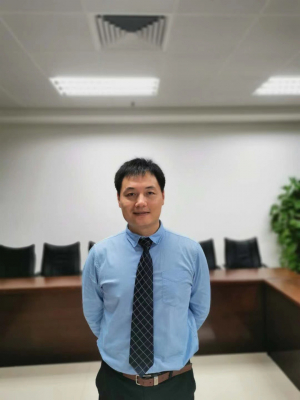章涛,教授,博士生导师
研究方向:新污染物环境暴露与健康
从事专业:环境科学
最高学位:理学博士
Email:[email protected]
**2023年仍招收环境化学、分析化学、微生物学、分子生物学或医学等背景的硕士或博士研究生(2022年10月24日更新);
**常年招收环境化学、分析化学、微生物学、分子生物学或医学等背景的博士后或研究员岗位,待遇丰厚。
- 工作及海外经历
2013.06~今 中山大学副教授(2013-),教授(2020-)
2018.12~2021.01 嘉应学院,科研处副处长(挂职)
2011.07~2013.06 南开大学,讲师
2018.07~2018.08 美国纽约州公共卫生局,访问学者
2014.11~2015.01 美国纽约州公共卫生局,访问学者
2008.12~2009.12 美国纽约州立大学奥尔巴尼分校,联合培养博士
2008.06~2008.10 瑞士联邦水科学与技术研究所 (Eawag),访问学生
- 科研方向
近十多年一直从事新型有机污染物环境污染与健康方面的研究,课题组围绕多种新污染物(全/多氟化合物、磷系阻燃剂、双酚类物质、苯系紫外吸收剂、新烟碱类农药及高氯酸盐)建立了痕量/超痕量水平的分析技术;基于此,一方面探寻适用于新污染物的人群暴露评估体系,筛选出主要外暴露来源;另一方面揭示人体内暴露过程(主要是胎盘传递与机体代谢过程)中物质传输的影响因素及作用机制。开展的工作包括:1)基于质谱技术的痕量有机物分析技术;2)人体外暴露(食物性来源解析)与内暴露(代谢及胎儿暴露)特征及作用机制;3)人体内暴露过程“靶标物”与“人体微生物生态”的交互作用及其机理。
- 荣誉及获奖
2021.09 中国环境科学学会青年科学家奖(优秀奖)
2018.02 教育部自然科学一等奖(排名第5)
2016.12 广东省特支计划“百千万工程青年拔尖人才”
2013.07 全国“百篇优秀博士学位论文提名奖”获得者
2015.11 广州市“珠江科技新星”入选者
2013.03 天津市“优秀博士学位论文奖”获得者
2010.06 教育部首批“博士研究生学术新人奖”获得者
2010.08 上海同济高廷耀环保基金会“青年博士生杰出人才奖”获得者
- 科研项目
先后主持科研项目14项,包括国家自然科学基金4项(青年项目1项、面上项目2项、优秀青年项目1项),教育部项目1项,广州市科技计划项目1项,中山大学“引进人才”项目1项等;并参与包括国家科技支撑计划、中央重金属污染防治专项、科技部国际科技合作等项目9项。主要项目列表如下:
1.国家自然科学基金优秀青年科学项目,22022612,新型污染物环境暴露与健康风险,2021/01-2023/12,120万元,立项,主持
2.国家自然科学基金面上项目,41877375,城市水链中新烟碱类农药来源、迁移转化及归趋研究,2019/01-2022/12,61万元,在研,主持
3.国家自然科学基金面上项目,21677184,新烟碱类农药人体内/外暴露特征及其氧化应激效应与作用机理研究,2017/01-2020/12,66万元,在研,主持
4.国家自然科学基金青年项目,21207071,环境新型污染物在人体中的暴露途径及其与不孕不育症的关系,2013/01-2015/12,26万元,结题,主持
5.国家科技支撑计划项目,2015AD05B05,重金属超标农田安全利用技术研究与示范,2015/09-2019/08,600万元,在研,参加
- 社会任职
2021年起 期刊Eco-Environment & Health (EEH) 编委
2015年起 JCR一区期刊Ecotoxicol Environ Saf.(SCI收录,IF = 4.53)编委
2019年起 中文核心期刊《环境化学》首届青年编委
2020年起 JCR二区期刊Int. J. Public Health(SCI收录,IF = 2.47)客座主编
2013年起 广东省环境诱变剂学会理事
2017年 第三届环境污染与健康国际会议分会召集人
2018年 第四届环境污染与健康国际会议分会召集人
2015年 第八届全国环境化学大会分会秘书
2019年 第十届全国环境化学大会分会秘书
- 代表性论文/论著
- Legacy and emerging poly- and perfluoroalkyl substances in finless porpoises from east China sea: temporal trends and tissue-specific accumulation. Environmental Science & Technology, 2022, 封面论文
- Urinary metabolites of neonicotinoid insecticides: Levels and recommendations for future biomonitoring studies in China, Environmental Science & Technology, 2020, 54, 8210-8220. 封面论文
- Concentrations of bisphenol A and its alternatives in paired maternal-fetal urine, serum and amniotic fluid from an e-waste dismantling area in China. Environment International, 2020, 136, 1-7.
- A nationwide survey of urinary concentrations of neonicotinoid insecticides in China. Environment International, 2019, 132, 105-114.
- Human exposure to phthalate esters associated with e-waste dismantling: exposure levels, sources, and risk assessment. Environment International, 2019, 124, 1-9.
- Titanium oxide based photocatalytic materials development and their role of in the air pollutants degradation: overview and forecast. Environment International, 2019, 125, 200-228.
- Health status of elderly people living near e-waste recycling sites: association of e-waste dismantling activities with legacy perfluoroalkyl substances (PFASs). ES&T Letters, 2019, 6, 133-140.
- Widespread occurrence of Bisphenol A in daily clothes and its high exposure risk in humans. Environmental Science & Technology, 2019, 53, 7095-7102.
- Urinary metabolites of organophosphate flame retardants in China: health risk from tris(2-chloroethyl) phosphate (TCEP) exposure. Environment International, 2018, 121, 1363-1371.
- Effect of e-waste recycling on urinary metabolites of organophosphate flame retardants and plasticizers and their association with oxidative stress. Environmental Science & Technology, 2017, 51, 2427−2437. ESI 高被引
- Urinary concentrations of bisphenols and their association with biomarkers of oxidative stress in people living near e-waste recycling facilities in China. Environmental Science & Technology, 2016, 50: 4045−4053.
- Associations between polycyclic aromatic hydrocarbon (PAH) exposure and oxidative stress in people living near e-waste recycling facilities in China. Environment International, 2016, 94:161-169.
- Perchlorate in indoor dust and human urine in china: contribution of indoor dust to total daily intake. Environmental Science & Technology, 2015, 49(4): 2443-2250.
- Blood and urinary bisphenol A concentrations in children, adults, and pregnant women from China: partitioning between blood and urine and maternal and cord blood. Environmental Science & Technology, 2013, 47 (9): 4686-4694.
- Distribution of poly- and perfluoroalkyl substances in matched samples from pregnant women and carbon chain length related maternal transfer. Environmental Science & Technology, 2013, 47 (14): 7974-7981.
- Perfluorinated compounds in human blood, water, edible freshwater fish, and seafood in China: daily intake and regional differences in human exposures. Journal of Agricultural Food and Chemistry, 2011, 59(20): 11168-11176.
- Perfluorinated compounds in surface waters and WWTPs in Shenyang China: mass flows and sources analysis. Water Research, 2011, 45(15):4483-4490.
- Perfluorinated compounds in whole blood samples from infants children and adults in China. Environmental Science & Technology, 2010, 44 (11): 4341-4347.
- Perfluorochemicals in meat eggs and indoor dust in China: assessment of sources and pathways of human exposure to perfluorochemicals. Environmental Science & Technology, 2010, 44 (9): 3572-3579.
- Perchlorate and iodide in whole blood samples from infants children and adults in Nanchang China. Environmental Science & Technology, 2010, 44 (18): 6947-6953.

